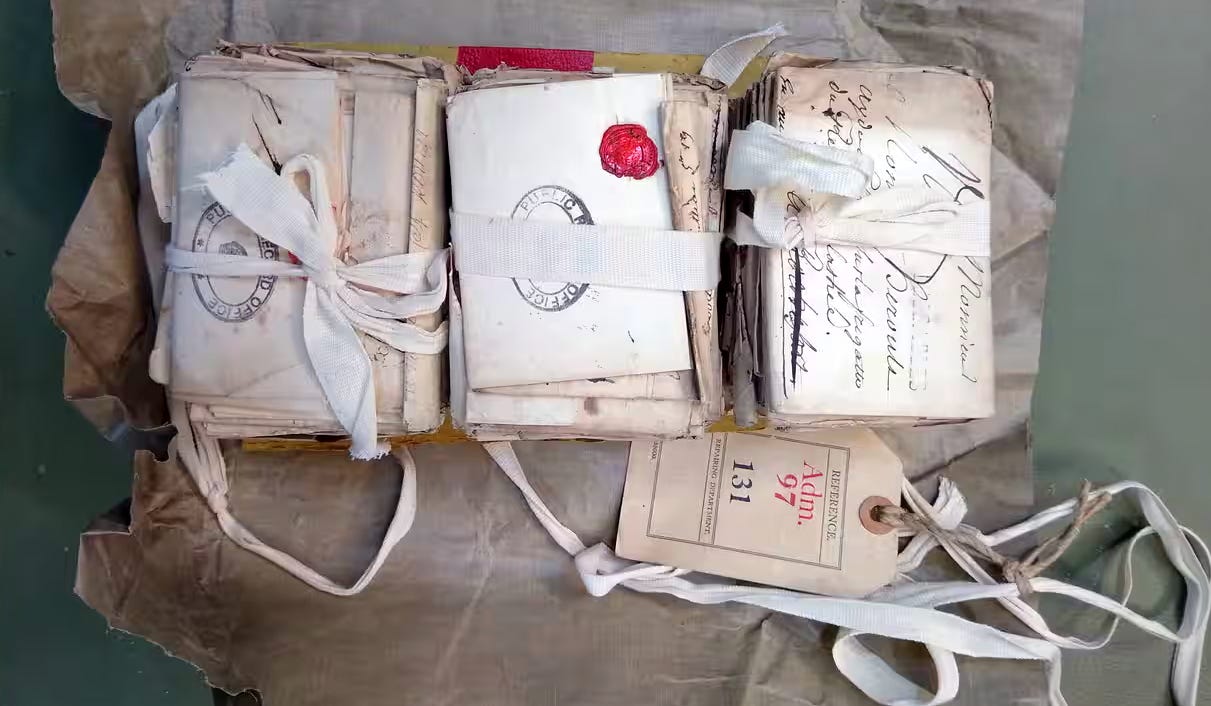Love Letters Across the Atlantic.
The "Special" Relationship between the United States and the United Kingdom Might Be The Most Committed One You Know.
In what has become the misery of modern dating, the vast narratives woven into advice columns all over the internet speak to different forms of the ‘perfect relationship’, with so much variation between them that it’s almost impossible to sort through the sludge and extract from it, real counsel. Having said this, there are of course a few characteristics, or fundamental pillars seen consistent across any successful relationship, providing what is almost guaranteed assurance of its longevity, and the willingness between two people (or two parties) to stick together through ‘thick and thin’! Those principles: Trust, Communication, Support, The Presence of Shared values, and Commitment seem to be old, tried and trusted but forgotten covenants that we should scope out when we look at a pairing and ask how on earth they made it here.
But in the context of our experience in society, we, and by ‘we’ I mean us ‘writers’, ‘dwellers’, and ‘artists’, limit ourselves when we dare to flatten our understanding of relationships and spot it in ways purely romantic. Contrastingly, a decision to expand our perspective here makes this conversation infinitely more interesting, particularly as most of us have become more intimately familiar with an altogether more devastating yet crucial ‘special relationship’ in light of the fallout of this year’s presidential election.
The unshakeable alliance between the United States and the United Kingdom is nothing if not deep. The bond between the two stretches back centuries, having first appeared as more of a controlling, unequal dynamic that transformed itself into one of mutual respect, and more recently appearing almost inverted, where those who sit at the helm of the UK’s head and heart do their best to appeal to American politicians on the Far Right. Where other nations previously a part of the British empire were continuously manipulated and exploited by their former oppressor (see: India, Nigeria, New Zealand or Pakistan), the States managed to, by way of taking part in practices reminiscent of British Imperialism, namely, War, Violent Expansionism, Colonialism and the like, solidified their position as a suitable match, and first and foremost, a trusted one.
Trust is the foundation of any good relationship.
According to relationship experts, of which I have become today, trust involves believing in each other’s honesty, integrity and reliability.
In the aftermath of the Second World War, both nations took on the bravest of tasks in any budding relationship, transparency. Unafraid to declare their feelings for one another, the pair revealed to the other their goals and needs in establishing a post-war world order. Trust me, this is as terrifying as it sounds, and through utilising trust, the pair came together to birth institutions like the U.N, IMF (International Monetary Fund) and NATO, which despite appearing necessary for social cohesion and our own survival, remain pivotal in establishing rules for global dominatio- …cooperation.
I wish the term ‘Special Relationship’ as it’s used to describe this bond came from some kind of collective observation made by us, inconsequential players, rather than constituting a weird, unspecified, term established by both parties, like your friend and her man who remain unwilling to define the mess that is their situation so instead resort to labelling it under terms you’d never yet come across. Still, this speaks to a certain ‘integrity’ within the relationship because, at the end of the day, both parties will profess their commitment in public. As far as reliability, the long-standing commitment between the US and UK stretched far beyond WWII and allowed both nations to continue their allyship in their mutual commitment to global ‘counterterrorism’ efforts for example. The close intelligence-sharing relationship between the CIA and Mi6 serves as a prime example of the level of trust between them, as well as the level of open communication occurring between the two, the second of our key principles.
Through the maintenance of open lines of communication through multiple diplomatic channels, like embassies, consulates, and official summits, it’s easy to facilitate frank discussions on both bilateral and global issues. For example, discussions between the U.S. president and the British prime minister as it appears typically, reflect an openness to share perspectives on global crises, trade agreements, military alliances, and security threats.
Like all intense relationships, the two are bound to butt heads from time to time, like that instance leading up to the Iraq invasion (2003), where despite initially standing with the U.S. in supporting an invasion that would displace millions and promote widespread suffering, issues arose regarding the ‘intelligence’ and ‘potential risks’ involved. At the time, Prime Minister Tony Blair, whilst showing full support for Bush’s intentions for Saddam Hussain, raised concerns about the evidence and the international legitimacy of a potential military action, because at this time we still liked to pretend that violence and destruction weren’t integral components of this nations makeup and a bonding glue for this ‘Special Relationship’.
Still, there comes a time to kiss and make up, when we remember to support our partners by offering them our emotional, mental or practical support when necessary. During times of economic crisis, the U.S. and the UK have provided an escape hatch in the safety of each other’s …Arms. Here we could talk about the Gulf War, (1990-1) or The Lend-Lease Act (1941), but we might also discuss that other thing. During the 2008 Global Financial Crisis, both countries coordinated efforts to stabilize global markets. The U.S. offered liquidity support through the Federal Reserve and the U.K. worked alongside the U.S. to shore up institutions like the IMF and World Bank. The support in Global ‘Diplomacy’ also commands our attention, as both parties remained determined to preserve a kind of Western superiority, where both were seen to take a unified front on spreading propaganda against rising ‘opponents’ like Russia and the entirety of BRICS (Brazil, Russia, India, China, South Africa).
Here we can see where the possession of shared values is crucial for the survival of any relationship. Some like to believe we can get into bed with our political opposite but soon learn about the unique set of issues that occur when we try this by way of experience. When your friend repeatedly complains to you about their partner’s shocking commitment to conservative and questionable values, whilst doing nothing to distance themselves from said partner, this isn’t an indication that we’re all able to just get along in spite of our differences, but that a lot of people are more alike their partners than they’d care to admit. Our ‘special relationship’ is similar in this way, where the intentions behind British politics remain more covert so that Brits might be able to ground themselves in some kind of exceptionalism in comparing themselves to their ally across the Atlantic as her political landscape continues to deteriorate.
Common beliefs of visions for the future create alignment and purpose within the strongest of relationships. Following swiftly on from horrifying revelations surrounding Trump’s project 2025, came whispers of our very own ‘Renewal 2030’, a bid to restore conservatism ‘in crisis’ through enacting policies that “Prevent us from being truly conservative” (Renewal2030.org), such as those which would severely impact disabled people, by reducing the amount of ‘reasonable adjustment’ plans provided to them. Kemi Badenoch, the blue party’s newest mascot, sits at the head of this campaign, as a woman who congratulated Trump on his “Impressive win” not long before shaming Kier Starmer for his previous sentiments on the candidate,
“Trump is not only a woman-hating, neo-Nazi sympathising sociopath, but is also a profound threat to the national order”.
- Kier Starmer (2021)
Yet, a couple of years later, following Trump’s criticism of Starmer’s ‘left-wing’ politics, the Prime Minister reports that having met Trump in New York back in September, the pair made sure to establish a “good relationship” before the election. Starmer is far from the only British politician to engage regularly with Trump though, and we know that the fascist Reform UK leader, Nigel Farage, remains Trump’s No .1 boy, fancying himself as a friend of the US president, and an ideological soulmate regarding his campaign for Brexit.
All in all, we can see where commitment underscores this relationship. A willingness to invest time, effort and energy into nurturing and sustaining the relationship over time keeps that passion alive. When two parties are equally as invested in one another, there is little that can stand in the way of true love. Whether it is the love for one another or the love for preserving colonial control over non-Western counterparts that is more prevalent here is certainly interesting, to say the least, or perhaps we’re being far too nosy.
After all, in matters: of love, war and ‘special relationships’,
who’s to say what goes on behind closed doors?
Asisa











Absolutely infatuated with this way of examining relationships and expanding it beyond romantic ones. I’m 100% bringing this essay with me as I navigate understanding the world.